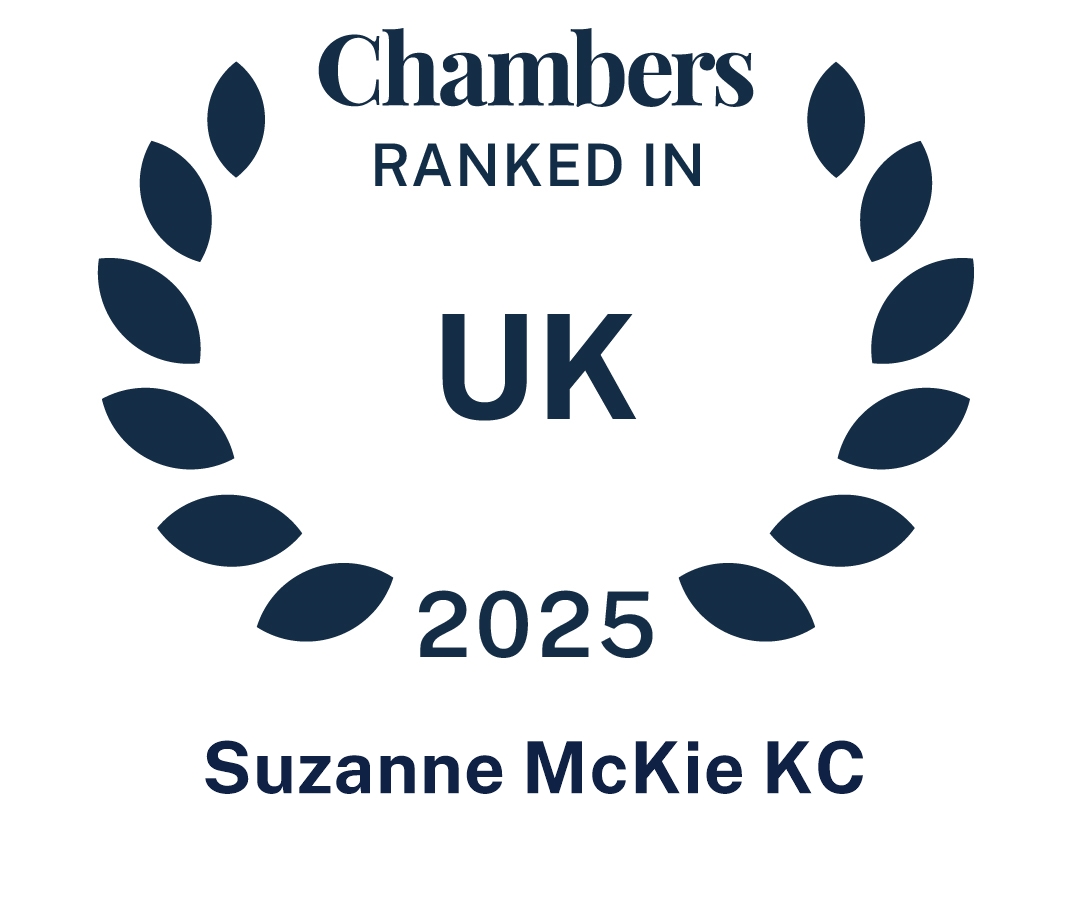
25 October 2022
|Restrictive Covenants
Blogs
The enforceability of 12 month non-compete clauses – Court of Appeal decides in Planon Ltd v Gilligan (2022)
The Court of Appeal upheld the High Court’s decision to refuse to enforce a non-compete covenant in the employment contract of the Defendant preventing him from working for a competitor for 12 months and to refuse an order to require the Defendant to disclose his current contract of employment and job description.
In Planon Ltd v Gilligan [2022] EWCA Civ 642, the Court of Appeal held that there is no presumption that a court will grant an injunction for a restrictive covenant which is prima facie enforceable, in circumstances where the balance of convenience does not lie in favour of the Claimant.
Employment lawyers advising senior executives have to often consider whether restrictive covenants set out in their contract of employment are enforceable and, if so, whether an employer may seek an injunction to enforce the terms of the restrictive covenant. Planon Ltd v Gilligan [2022] EWCA Civ 642 is an interesting case, as the Court of Appeal provides guidance on how a court should approach an application for interim injunction that seeks to enforce the terms of a restrictive covenant.
Facts
Mr Gilligan (“the Defendant”) was a former employee of Planon Ltd (“the Claimant”). He worked with the Claimant from 9 February 2015 to 23 August 2021. The Defendant’s contract of employment contained a series of post-termination restrictions (“PTRs”).
The Defendant was initially employed as one of two Account Managers, responsible for around 30 accounts. His focus was to sell directly to existing customers, ensuring that they were happy with the Claimant’s products and services and identifying what else they might need. As a result of his role, the Defendant had access to the Salesforce Customer Relationship Management database, which listed all the customers of the company. The Defendant also attended weekly sales meetings in which product development was discussed and was also sent information about the developments planned for each product, such as plans for items which will be released in the future.
The Defendant was subsequently promoted to the position of Sales Manager on 1 May 2020, where he was still significantly exposed to confidential information and still had contact with the Claimant’s customers. As a Manager, the Defendant had oversight over all Account Managers and therefore had access to information about all of the Claimant’s customers in the UK.
As a Manager, the Defendant also had access to information about his team, including their remuneration and was involved in setting their salaries. The Defendant was therefore in a position to know who the best performers were and what salary offers might persuade them to leave the Claimant’s business.
The Defendant gave one month’s written notice to terminate the Contract on 23 July 2021. The Defendant was put on garden leave on 6 August 2021 and his contract was terminated on 23 August 2021.
Clause 17.1 of the contract of employment stated that “in order to protect the Claimant’s confidential information trade secrets and business connections to which the Defendant had access, the Defendant had to enter into a series of covenants”. The most relevant one for the purposes of the Court of Appeal decision is that the Defendant would not be involved in any capacity with any business concern which is or intends to be in competition with any Restricted Business (“the non-compete clause”).
The PTRs contained a series of exceptions in clause 17.2:
· the Defendant was permitted to be “engaged or concerned in any business concern insofar as the duties of the Employee or work shall relate solely to geographical areas where the business is not in competition with any Restricted Business”.
· The Defendant was permitted to be “engaged or concerned in any business concern, provided that the duties of the Employee or work shall relate solely to services or activities of a kind with which the Employee was not concerned with to a material extent in the twelve months before the termination”.
In the contract of employment, a “Restricted Business” is defined as “[t]hose parts of the business of [the Claimant] with which [the Defendant] was involved to a material extent in the six months before Termination”.
The period of the PTRs ran from 6 August 2021 when the Defendant went on garden leave.
Following the termination of his employment, the Defendant started employment with SNU, which the Claimant considered to be a key competitor and such that the Defendant was in breach of the PTRs.
SNU was actively seeking to poach employees from the Claimant’s business. When the Defendant handed in his resignation letter on 23 June 2021, his line manager had asked him where he was going and the Defendant had refused to inform his line manager about his career move. The Defendant subsequently stated on 5 August 2021 that he was not “intending to work for [SNU] (or indeed another of [the Claimant’s] limited competitors) in a role that would place me in competition with [the Claimant]” and reassured the Claimant that he would abide by the “spirit” of the PTRs even though he considered them to be unenforceable.
The Claimant only discovered that the Defendant joined SNU following his final day of working for the Claimant. It then realised that the Defendant’s new role at SNU was identical to that which he was previously doing with the Claimant’s business. One of the Defendant’s key responsibilities at SNU was to closely monitor its competitors and report on “opportunities, obstacles, challenges and red flags which might hinder [SNU] from capturing customer accounts”.
The Defendant argued that the PTRs were unenforceable as the effect of the PTRs was that he could only work after August 2022. This deprived him of the ability to earn a living and support his family. The Defendant also argued that SNU was not a key competitor, as he never came across the company in any competitive situation when he worked for the Claimant. The Defendant also pointed out that, by the time he started employment at SNU, he no longer had access to the Claimant’s database or documents and had no intention of using the confidential information to benefit SNU. In any event, the confidential information was too extensive for the Claimant to carry around in his head.
The Claimant issued proceedings against the Defendant and sought to enforce the PTRs.
Legal Background
Validity of restrictive covenants
The starting point is that any term in a contract that purports to restrict an individual’s freedom to work or to follow their trade will be void unless if it is reasonable in the circumstances by reference to the interest of the parties concerned and the public interest.
For a restrictive covenant to be enforceable, it must protect a legitimate business interest of the employer, which is determined by reference to the nature of the employer’s business and the employee’s position and duties within that business.
The test of reasonableness is a balancing exercise between the employer’s legitimate business interests and the employee’s interests. The burden of proving reasonableness lies on the party enforcing the covenant.
A non-compete covenant is traditionally harder to enforce than other restrictive covenants, especially where an employer seeks to enforce a non-compete covenant of a broad scope and duration, as a non-compete covenant is the “most powerful weapon in an employer’s armoury”; Patsystems v Neilly [2012] EWHC 2609 (QB) at paragraph 44. Moreover, a desire to restrict competition per se without more is not a recognised legitimate interest. Lord Wilbeforce commented in Stenhouse Australia Ltd v Phillips [1974] AC 391 at page 400 that “[l]eaving aside the case of misuse of trade secrets or confidential information […] the employer’s claim for protection must be based upon the identification of some advantage or asset inherent in the business which can properly be regarded as, in a general sense, his property, and which it would be unjust to allow the employee to appropriate for his own purposes, even though he, the employee, may have contributed to its creation”.
Obtaining an interim injunction
American Cyanamid Co v Ethicon Ltd [1975] AC 396 lays out a three-stage test for obtaining an interim injunction: (i) there must be a serious issue to be tried; (ii) damages must be an inadequate remedy; and (iii) the balance of convenience must lay in favour of the claimant.
As a condition for obtaining an interim injunction, the claimant is required to give an undertaking in damages whereby the claimant promises to compensate the defendant, in the event that the claimant loses at trial.
High Court decision
Edwin Johnson J. noted that a key issue at trial would be whether clause 17 would be an unreasonable restraint of trade and unenforceable, in whole, or in part, for that reason. There was clearly a serious issue to be tried.
There was a risk that the Defendant was in breach of the obligations he owed to the Claimant for simply performing his duties for SNU. It seemed more or less inevitable that this would place the Defendant in breach of the non-compete clause.
A critical point for the judge was that the non-compete clause was likely to prevent the Defendant from being able to work for anyone in the market in which the Claimant operates for a period of 12 months. However, the judge accepted the Claimant’s argument that the Defendant would be entitled to be involved in a business concern provided that the duties or work “shall relate solely to services or activities of a kind which the [Defendant] was not concerned with to a material extent in the 12 months before termination”. The judge, however, noted that given that the Defendant worked within a niche market, it would be difficult for him to transfer into another area of the software market and find alternative employment. The effect of the non-compete clause is that it would force the Defendant to be unemployed for twelve months.
The judge accepted that damages would not, or might not, be an adequate remedy for the Claimant. But there was also a risk that damages would not be adequate for the Defendant either. On the balance of convenience point, the judge noted that, if an injunction was granted, there was a risk that the Defendant would not be able to work until August 2022, which the judge considered to be an unreasonable result. The judge also took into account how damages would be an inadequate remedy for both sides and that there was an issue of delay in this case, but that this would not disqualify the Claimant from an award of interim injunctive relief.
The judge concluded that the balance of convenience lay in favour of granting some injunctive relief to the Claimant, but importantly, the judge refused to enforce the non-compete clause and also refused to grant an order requiring the Defendant to disclose his current contract of employment or job description, as the judge’s principal concern was that this was a question on which SNU might wish to be heard.
The Claimant appealed the decision on ten grounds. To summarise the main grounds of appeal:
· Did the judge err in law in his approach to the enforceability of the non-compete clause?
· Would the Claimant be more likely than not to succeed at trial in showing that the non-compete clause is enforceable?
Court of Appeal decision
Laing LJ provided the main judgment in Planon Ltd, with Nugee LJ and Bean LJ providing shorter concurring judgments.
Did the judge err in law in his approach to the enforceability of the non-compete covenant?
Laing LJ made due allowance to the fact that an ex tempore judgment was made on the day of the hearing and that an inevitable consequence of doing this was that there were pressures on the structure, clarity and polish of Edwin Johnson J’s judgment.
Laing LJ noted that Edwin Johnson J. had asked himself whether the non-compete clause was reasonable or not by taking into account the likely effect that the non-compete clause had on the Defendant’s employment prospects. The judge also took into account that there was sufficient evidence of a breach of the PTRs but failed to consider the Claimant’s position, or the Claimant’s arguments in support of the enforceability of the covenant. The judge only considered the Claimant’s position to a limited extent when he considered the adequacy of damages as a remedy and the balance of convenience.
Laing LJ held that Edwin Johnson J. did not adopt the correct approach in his analysis, as he did not expressly apply the right test to the enforceability of the non-compete clause. It followed that the judge’s decision on the enforceability of the non-compete clause could not stand.
Would the Claimant be more likely than not to succeed at trial in showing that the non-compete clause is enforceable?
Laing LJ held that based on the facts, a court should not enforce the non-compete covenant now, as the non-compete covenant only had about four months left to run. Laing LJ considers that “it would be contrary to the balance of convenience for this Court to enforce the non-compete covenant now. It seems to me likely that much, if not all, of the damage which [the Defendant’s] employment by SNU might have caused to [the Claimant’s] legitimate interests has already been caused.”
Laing LJ concluded by stating that, although the High Court erred on its reasoning about the enforceability of the non-compete clause, she would nonetheless uphold the judge’s refusal to enforce the non-compete for the reason outlined above.
Nugee LJ’s judgment
Nugee LJ agreed with Laing LJ’s judgment but added that an application for an interlocutory injunction is not the appropriate occasion for a court to give any definitive answer on the enforceability of a covenant. The judge noted that since American Cyanamid, “it has been established law that the Court should not usually seek to resolve the substantive issues on such an application. At the first stage of the analysis the question is whether there is a serious issue to be tried. This is not a demanding test, and it only serves to exclude the case where the claim is frivolous or vexatious, or otherwise demonstrably bad…[the] prolonged examination of the merits at the interlocutory stage is not appropriate”.
Nugee LJ also commented that, in considering the balance of convenience, the Court may, in cases of this type, undertake some assessment of the merits. But this is merely “some assessment” and simply requires the court to undertake a “preliminary view”. Nugee LJ stated that “[t]he overall question at the third stage is what is the most just and appropriate way to hold the ring pending the trial.”
Bean LJ’s judgment
The judge noted that there are two ways of dealing with injunction applications such as the one sought in Planon Ltd: (i) the court could order a very speedy trial (taking place within weeks rather than months) and make an interim order which will hold the “ring” for the short period pending trial; or (ii) where it is clear that there will be no trial until the period of the covenant expiring or nearly expiring, the judge may be asked to form a preliminary view on the merits of the claim, which is a consideration to be factored into the balance of convenience under the third stage of American Cyanamid.
Bean LJ considered the issue of delay to be significant in this case. Although the judge does not encourage the approach of litigators “who fire off several aggressive letters per day”, he notes that the Claimant’s approach in this case was “too far in the opposite direction”. On the facts, the Defendant joined SNU on 1 September 2021 and the Claimant became aware of this on the next day. The letter before action was not sent until 20 September 2021 and proceedings were only issued on 21 October 2021. By the time a hearing took place on 5 November 2021, the Defendant had been working at SNU for two months. By the time a hearing took place at the Court of Appeal, the Defendant had been employed at SNU for 7 months. Bean LJ commented that if the Defendant’s new job “posed as severe a threat to [the Claimant’s] protectable trade secrets or customer connection as the Claimants sought to argue, the damage would surely have been done in the first few days, and certainly well before the lapse of two months.”
What to take away
Planon Ltd is a significant case as it illustrates that the High Court, in considering an application for interim injunction, is not in a position to consider whether a restrictive covenant is enforceable or not, given that the test in American Cyanamid does not require a court to undertake a mini-trial when considering whether to grant an injunction on an interim basis. The most the court can do with an application for interim injunction is to form a preliminary view on the merits, which is one of a number of relevant factors when considering where the balance of convenience lies.
This case also serves as an important reminder that employers wishing to enforce the terms of a PTR should do so without delay. For example, if an employer is seeking to enforce a non-compete clause in order to protect its trade secrets or customer connections, the longer the employer waits to take action by seeking an interim court order, the more damage will have already been done to the employer, something which might justify a judge’s refusal to grant an injunction.
One reason why Laing LJ refused to enforce the injunction was because the non-compete covenant had only about four months left to run. What would have happened, however, if Laing LJ had decided the injunction at first instance in November 2021? Laing LJ noted that although the High Court judge asked himself whether the restrictive covenant was reasonable or not, he did not incorporate the correct test for establishing whether a covenant was enforceable. The test is not simply whether a covenant is reasonable or not, rather, it requires the court to also assess whether the covenant serves to protect the employer’s legitimate interests. Laing LJ noted that the principal factor that the High Court judge had taken into account against granting the injunction was “that if the non-compete covenant was enforced, A would not be able to work for the period of the restraint.” Laing LJ noted that there is no authority for that approach and that “[i]f there are other similar covenants, it is much better that, if a view about their validity is reached, it should be a definitive view based on the findings of fact made after a speedy trial”. In other words, if you are the employer, you should act quickly to apply for your interim injunction and request a speedy trial so that within a matter of months the full merits of the enforceability and reasonableness of the covenant (and whether it has been breached) can be considered. Delay can be fatal to the application.









